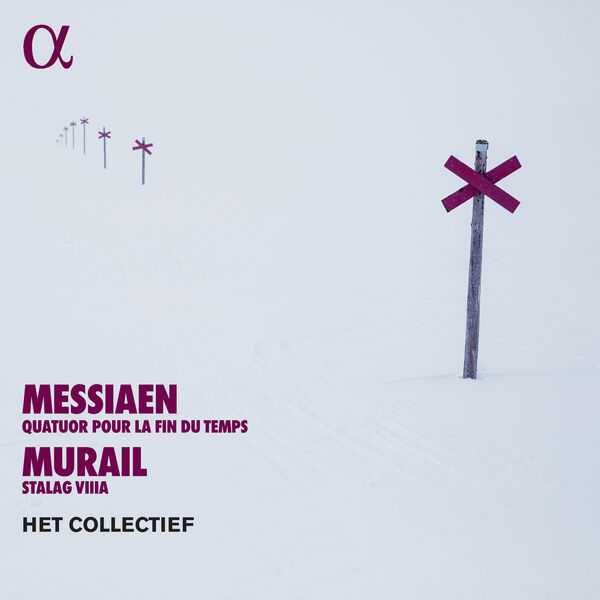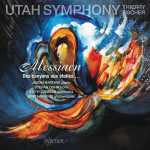

Composer: Olivier Eugène Prosper Charles Messiaen, Tristan Murail
Performer: Het Collectief
Format: FLAC (tracks)
Label: Alpha
Catalogue: ALPHA1048
Release: 2023
Size: 1.05 GB
Recovery: +3%
Scan: yes
01. Murail: Stalag VIIIa
Messiaen: Quatuor pour la fin du temps
02. I. Liturgie de cristal
03. II. Vocalise, pour l’Ange qui annonce la fin du temps
04. III. Abîme des oiseaux
05. IV. Intermède
06. V. Louange à l’Éternité de Jésus
07. VI. Danse de la fureur, pour les sept trompettes
08. VII. Fouillis d’arcs-en-ciel, pour l’Ange qui annonce la fin du temps
09. VIII. Louange à l’Immortalité de Jésus
Olivier Messiaen composed his eight-movement Quartet for the End of Time in 1940 while imprisoned in Germany. He drew his inspiration from the Apocalypse written by Saint John the Evangelist, one of the few works he was allowed to keep in the camp. Het Collectif explores this work, never forgetting that it was at the heart of this harsh winter of war, in a context of misfortune, confinement and deprivation, that Messiaen had an angel speak, promising paradise and the end of time… Stalag VIIIa, composed by Tristan Murail, whose title refers to Olivier Messiaen’s place of detention in Gorlitz in 1940, completes this programme.
There is no shortage of recordings for Olivier Messiaen’s Quatuor pour la fin du temps, one of the undisputed masterpieces of 20th century music. The work, composed for the musicians and instruments Messiaen had at hand in a German concentration camp, is bold enough in its conception to stand up to less-than-ideal performances, but the small ensemble Het Collectief also shows what can be accomplished with a detailed, careful, and indeed, quite virtuosic one. The work’s title might be heard two ways; one may take at face value Messiaen’s references to the Apocalypse, but “the end of time” may also, in view of Messiaen’s experiments with rhythm and timbre in the work, be given a musical meaning. It is not a particularly experimental piece harmonically, but its disruptive treatment of rhythm was profoundly influential. The critic Olivia Giovetti has written that the captures “at once the breadth of the end times as prophesied in the Book of Revelation and the intimate, miniature detail that Messiaen introduces into the composition.” Het Collectief’s performance is dispassionate, careful, and extremely detailed. Anyone looking for apocalyptic shivers can find them elsewhere, but there is much to ponder and consider here on repeated hearing. Het Collectief does well with its choice of introductory work, Stalag VIIIa (the title refers to the camp at Görlitz where Messiaen was held), by the spectral composer Tristan Murail, which primes the listener to listen for textural and rhythmic detail in Messiaen’s work as much as to its harmonic surface. This is a major Messiaen release that should be heard by anyone engaged with the composer.



